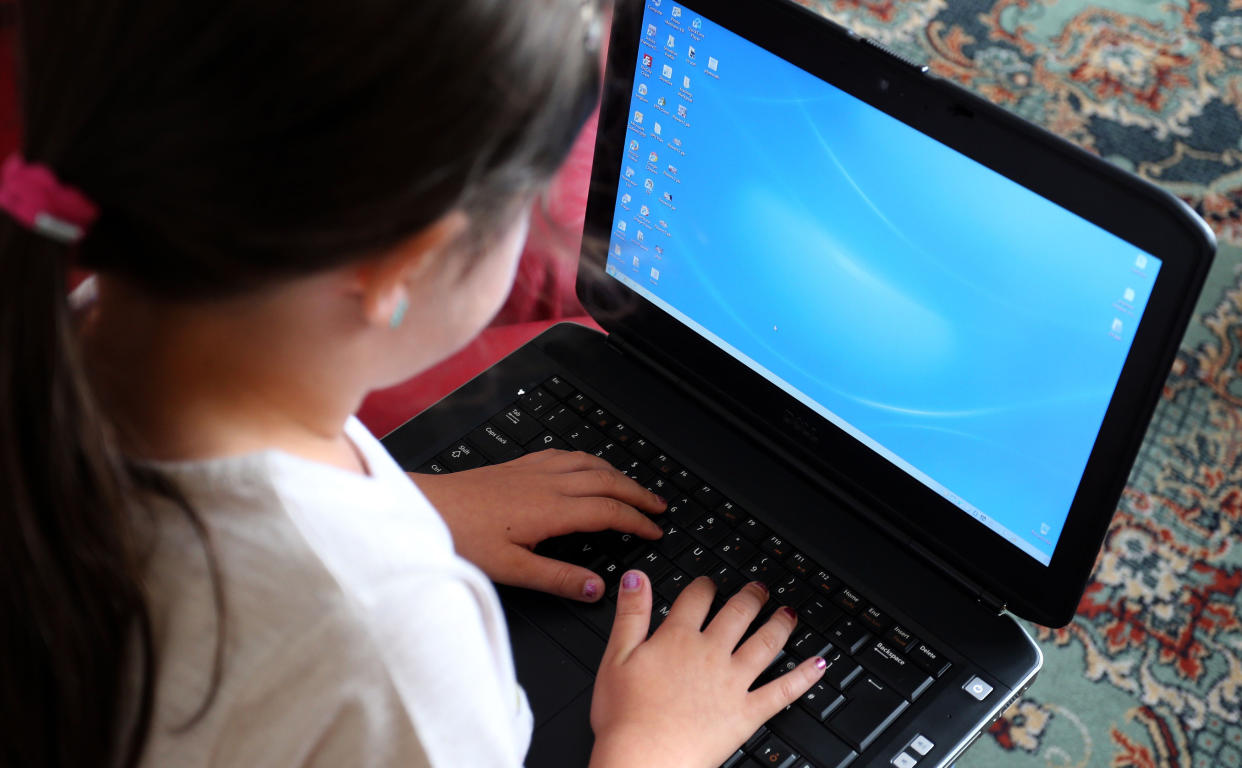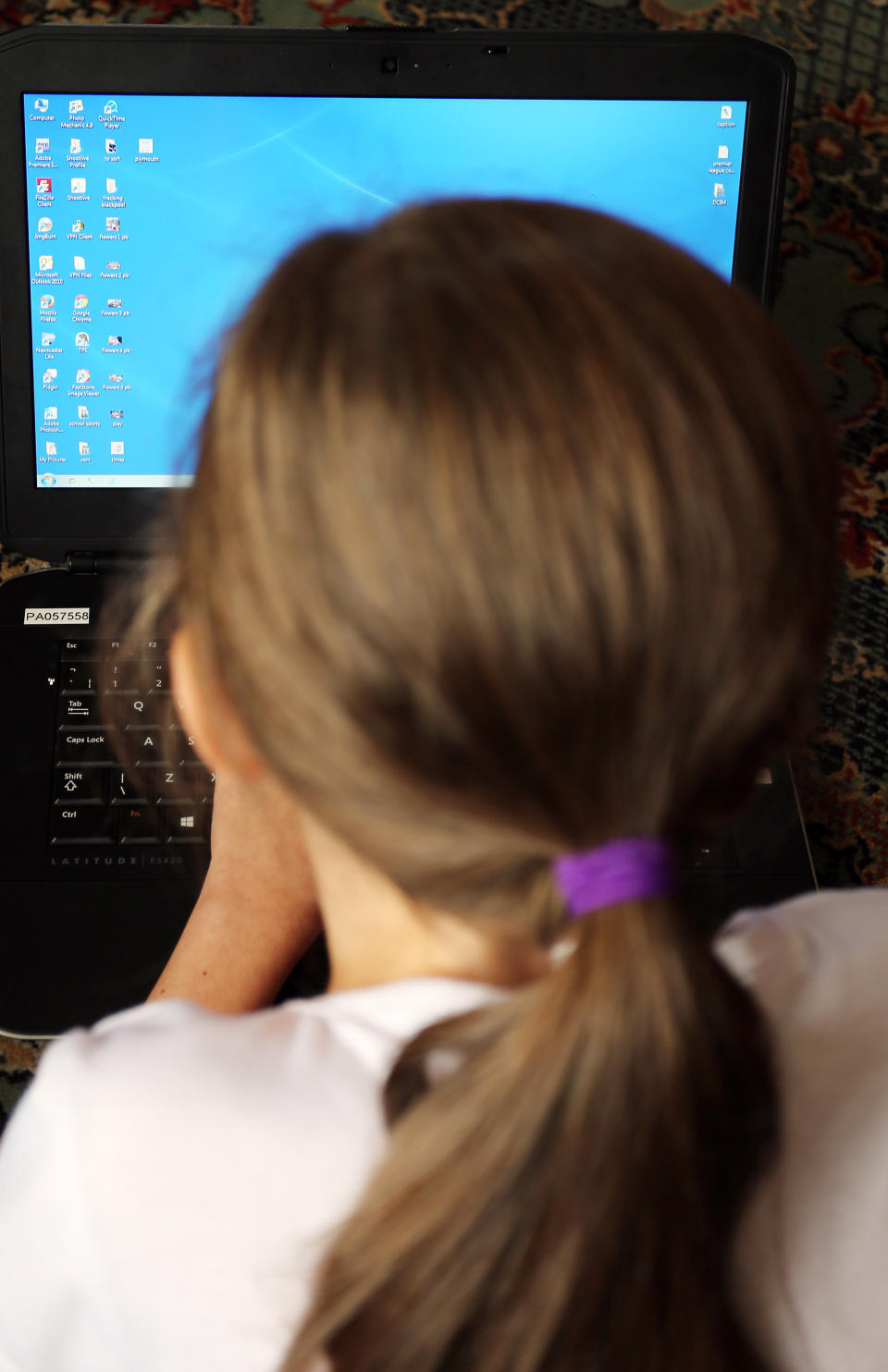A third of young people pressured into sharing personal information online

One in three young people feel pressured into sharing personal information online, a charity has revealed.
The data, released by the UK Safer Internet Centre to mark Safer Internet Day 2019, reveals the extent to which young people’s personal data is being shared online – with or without their total consent.
A poll by the charity revealed that despite 79% of young people feeling confident in telling someone not to share something they don’t want online, 34% have said yes to something being shared when they didn’t want it to be.
The charity calls this ‘conflicted consent’ – where people feel pressure to agree to something they might find embarrassing, or that leaves them feeling uncomfortable, due to a fear of how their friends might react.
The poll comes amid growing concern about the impact social media in particular is having on young people.
At the weekend, it emerged the suicide rate has almost doubled in eight years for young people, with new figures showing that five young people in every 100,000 aged between 15 and 19 are taking their own lives. This compares to three in 100,000 in 2010.
It comes after the father of 14-year-old Molly Russell accused Instagram of being partly culpable after his daughter killed herself in November 2017 after looking at disturbing images online shortly before.

Ian Russell, 55, of Harrow, north-west London, said: ‘I have no doubt that Instagram helped kill my daughter.’
Teacher Christian Foley warned that younger children are being exposed to the dangers of the internet.
“The younger age groups are having more and more contact with the internet and largely it’s not a good thing.
“We’re seeing probably more problems than we are benefits,” he said.
“Among children who’ve been excluded the internet is directly culpable in violent crime.
“If a child is stabbed another child might make a song about it and release that song.
“We have issues of parents who have lost children who are then hearing songs about the murder of their children.”
Vulnerable children are also in danger of targeting by extremist groups, Mr Foley warned.
“We’re seeing massive problems with extremism through the internet and the widest platform for that is things like Britain First. That’s really dangerous for kids.
“I’ve worked with children of all cultures and faiths who’ve been excluded from school for extremism and generally they are the most vulnerable children who have been exploited.
“And the internet generally is the entry point. The powers of these groups online is really intimidating.”
Today, the digital minister Margot James announced a crackdown on such content on social media sites, saying that companies would be forced by law to sign a code of conduct committing to protect vulnerable and young people from being exposed to such images.

‘Conflicted consent’
In the past year 52% of young people had a photo, or video, of them shared online without their prior knowledge or consent, and only 51% think their friends should ask permission before tagging them – with 37% thinking their parents should ask permission.
Will Gardner, OBE, director of the UK Safer Internet Centre, said the gape was ‘striking’.
“Our research shows that without clear guidance for navigating the complexities of online consent, the gap between young people’s attitudes and behaviours is striking,” he said.
“Safer Internet Day provides a unique opportunity to address this gap, by listening to young people’s
experiences, leading by example, and encouraging conversations about our online lives.”
The impact of videos and images shared without consent left 40% of those affected feeling anxious, or without control, 28% were left feeling angry, and 15% of young people were worried that once shared they could lose control of a photo or video that had been shared online.

However, the poll revealed the positive value of young people having access to the internet.
Almost two-thirds (65%) of young people said being online makes them feel more connected to the world and 70% said being online helps them understand what’s happening in the world while 43% say they feel empowered and that their actions matter.
Mr Gardner added: “It is vital that we – from an individual to an industry level – take responsibility to support young people to navigate consent online and put their positive attitudes into action.
“We must move beyond advising them only on what they should do online, and work with them to understand how to do this in practice.
“In doing so, we can empower young people, and those that support them, to be better able to
harness and use the positive power of the internet for good.”
Five ways to stay safer online
Think before you post. Once you’ve posted something, what happens is out of your control – it can be shared by anyone and might not be able to be removed.
Know where to find help – it’s never too late to report or block someone if something upsets you.
Don’t give in to pressure: if you lose your inhibitions you’ve lost control; once you’ve pressed send you can’t take it back.
Be careful what you share – if someone is asking for information or pictures that you don’t know, don’t be afraid to say no.
Know who you are talking to – if strangers try to add you on social media be wary and don’t allow them to access anything you wouldn’t want the world to know.
Find out more about Safer Internet Day and download the educational packs here.

 Yahoo News
Yahoo News 
